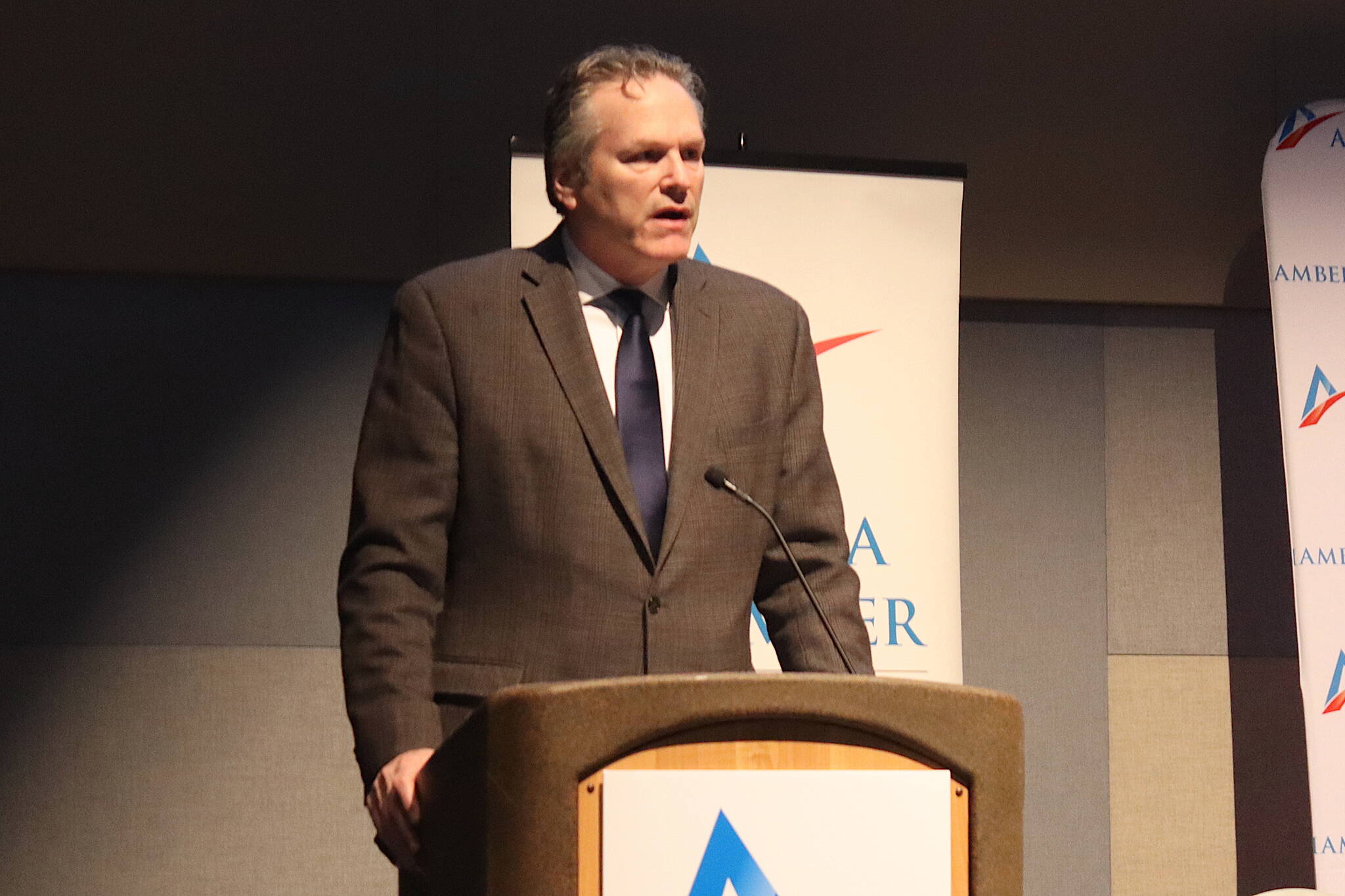Don’t be fooled by the “efficient administration” justification for the decision by Gov. Mike Dunleavy to assume total control of the Alaska Marine Highway Operations Board. Before it was created three years ago, he wanted the power to appoint all its members. The Legislature knew better then. They should promptly reject his power grab now.
There’s been a lot of taxpayer money wasted chasing the canard of inefficient government. By that I don’t mean it’s efficient enough to be left alone. Rather, improving efficiency has been an objective of every president dating back to at least the 1970s. But so little has changed it’s been reduced to a vague political talking point.
That’s all it is here. Especially considering Dunleavy’s mismanagement of the Alaska Marine Highway System. It began when he hired a consultant to examine ways to reduce the state subsidy to $24 million. That was based on his first budget proposal, which was about a third of the prior year budget and half of his budget compromise with the Legislature. The consultant was also directed to consider fully privatizing the system.
The Northern Economics Team concluded the system couldn’t effectively operate at that level of subsidy while still providing minimum levels of service to coastal communities. And they determined none of the privatization options were feasible.
Obviously, Dunleavy wasn’t pleased with their findings, which is probably why he resisted sharing the report with the public for several months.
Next came the Alaska Marine Highway Reshaping Work Group. Again, its goal was “to ensure residents have access to essential transportation services among Alaskan coastal communities.” Meanwhile, his budget cuts had already begun to severely hamper the system’s ability to provide those services.
Among the few easily implemented recommendations offered by the Reshaping Work Group was the establishment of an Alaska Marine Highway Operations Board. The bill Dunleavy submitted to create it would have given him the power to appoint every member. But the version passed by the Legislature made the Senate president and House speaker each responsible for appointing two of them.
Dunleavy probably would have vetoed it if he was sure the Legislature couldn’t override him. But it passed unanimously. Now he’s trying to repeal it with an executive order.
The federal Supplemental Nutrition Aid Program is another program that may have been compromised under the banner of improving efficiency.
SNAP is administered by the Division of Public Assistance. Prior to 2021, it was under the Alaska Department of Health and Social Services. In order to “streamline and improve the delivery of critical programs and services while creating more flexibility and responsiveness,” Dunleavy split it into two departments, with SNAP falling under the new Department of Family and Community Services. He’s never provided evidence that the reorganization improved anything. But by becoming the first governor to botch execution of SNAP, he gave us another example of how not to run government efficiently.
Then there’s the type of efficiency that Dunleavy prizes that has nothing to do with government operations.
Last winter, the State Officers Compensation Commission recommended the governor’s salary be increased by 20%. The Legislature rejected the proposal, probably because a year earlier the SOCC recommended changes to their salary and per diem that would have effectively been a sizable pay cut. So, Dunleavy appointed three new commissioners to fix the problem. Almost immediately, they gave him what he wanted by recommending a 67% raise for legislators, which in turn eliminated their opposition to his raise.
That’s similar to what he’s attempting by usurping control of the Alaska Marine Highway Operations Board. He wants it made up of people willing to rubber stamp his vision, not waste time challenging his authority with questions or criticism.
The current board has been too independent for him. One example that could impact Juneau ferry travelers is his plan to build and lease a terminal at Cascade Point for all sailings to and from Haines and Skagway. They repeatedly pushed back hard on that.
If the Legislature doesn’t reject Dunleavy’s power grab, the Alaska Marine Highway Operations Board will be reduced to a worthless façade of independence. And as we’ve seen from his gross mismanagement of AMHS, it’s unlikely to become a more efficient mode of transportation until we elect a new governor.
• Rich Moniak is a Juneau resident and retired civil engineer with more than 25 years of experience working in the public sector. Columns, My Turns and Letters to the Editor represent the view of the author, not the view of the Juneau Empire. Have something to say? Here’s how to submit a My Turn or letter.

